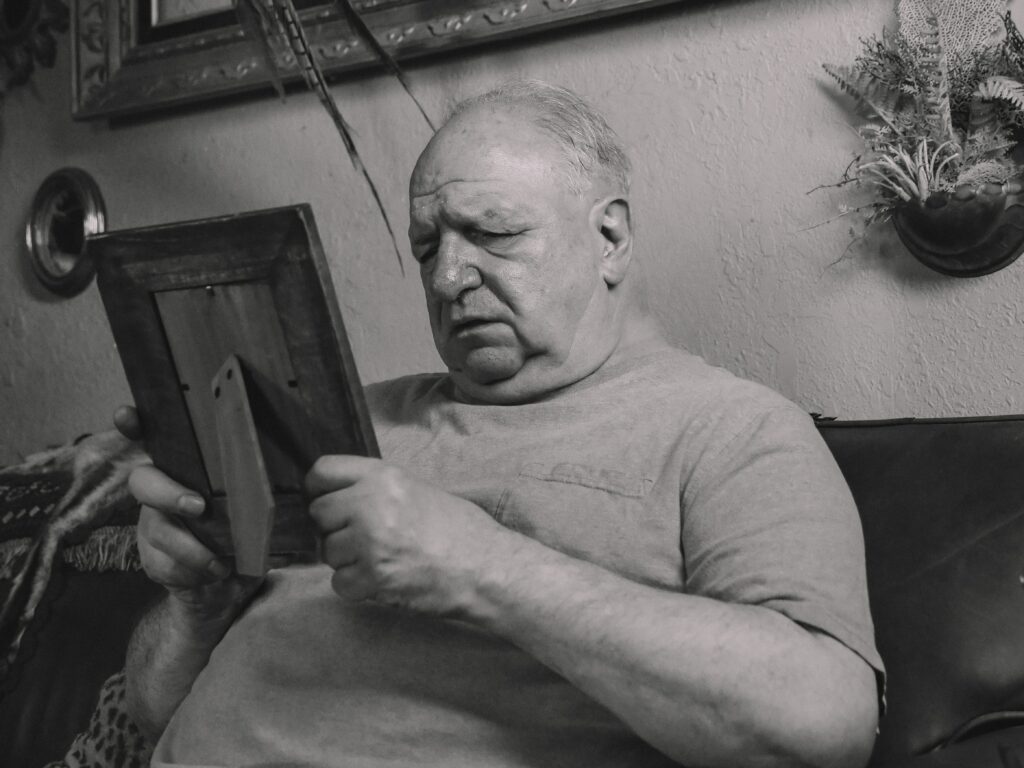Everyone is aware that as we get older, certain things just don’t work as well as they used to. Like, our memory. And for some, it can start as early as our 50s or 60’s. Some people that do start to lose their memory even earlier, may be diagnosed with early-onset Alzheimer’s disease, which can happen as early as their 40s. Alzheimers is a type of brain disorder, which often causes problems or issues related to memory, thinking or behavior. This is often a gradually condition but progresses quickly.
Below are the top ten early signs that many seniors face when diagnosed with Alzheimer’s disease. Some may be subtle, while others are easy to notice. whether if you a caregiver or a senior, if you notice either one of these signs, contact your doctor and schedule an appointment. Catching signs of Alzheimer’s disease early can really make a difference in a seniors life. Just a reminder, although seniors with Alzheimer’s disease will experience many of these early signs, some may only be affected by a few signs. Or, in some cases, all of them. Every person is unique and different when it comes to Alzheimers.
1. Challenges in Planning Events in Life

One of the first signs of Alzheimers is not doing something that usually came natural to do before, such as planning or scheduling important things on the calender. Many people may have trouble focusing or solving simple problems as well. Some seniors may also be diagnosed with dementia, a type of Alzheimers. Seniors could also have trouble working with numbers, making it difficult to do their finances or keep to a budget. Plus, it may take seniors much longer to do certain planning task too.
2. Confusion with where they are or the Time of Day
This can be so simple as walking out of the store and forgetting if they walked or drove to get there. They lose track of time as well. Seniors can get lost in their thoughts, such as if they need to take their medication or not. Those with early signs of Alzheimer’s disease may forget whether it is daylight or if it is time for bed. Which for a caregiver or children of parents with this disease is a scary thing to watch and experience.
3. Interruptions with Your Life

This could actually be one of the most common signs of Alzheimer’s disease. Examples of this is forgetting learned information that you should know without thinking, such as your own birthdate or social security numbers. Many seniors tend to ask the same question over and over, in hopes they won’t forget. Seniors may also forget important dates or special events that they went to quite often. Some may need to rely on memory aids or carry a handy notepad to keep important information on.
4. Difficulty Completing Familiar Tasks
One of the hardest things to witness is when your elderly parent can’t remember how to do or complete basic tasks. It may be something like driving to a familiar place or playing a game that they love, but forgetting how to start? It may also be doing something like warming up food in the microwave and forgetting how long to cook it. These are often very challenging to not only watch, but experience as well. Seniors can become frustrated that they can’t do something they know in the hearts is usually easy.
5. Problems with Speaking and Writing Words
Trying to find the right words can be troubling for some seniors with Alzheimers. Many Alzheimer’s seniors may go through language barriers. This could mean either or both verbal and written. Seniors may not understand or have trouble communicating what they are trying to speak or say. The words come out a little jumbled or they may start to speak, but then can’t remember how to end the conversation. Or, sometimes it’s all about writing. Seniors may start a grocery list on paper, but then forget how to spell the product or even their name. This can be very hard to go through.

6. Changes in Mood and Personality
It is common that seniors with Alzheimer’s may in time become irritable or distant. Their moods or personality can often shift or may change on a daily basis even. Individuals going through this may also experience personality changes, such as feeling anxious or confused one day, then very agreeable or happy to see you the next. Depression can sometimes set in with Alzheimer’s individuals. Some may feel upset with close family or friends, especially when they don’t feel comfortable in a situation.
7. Decreased or Poor Judgment
Another sign of early Alzheimer’s disease is the inability to make effective or logical judgment calls. Some seniors may experience resentment because they have problems with decision making or unable to comprehend what is right or wrong. They loose focus at times and may even find it hard to remember to bathe themselves. Seniors sometimes make bad decisions or often neglect their personal hygiene duties. This can be exceptionally dangerous especially if the senior is still driving and is not aware of their surroundings. Many seniors who have not yet been diagnosed with early onset Alzheimers can experience these.

8. Trouble Comprehending Visual Images
For some seniors that are diagnosed with Alzheimer’s disease may also develop vision problems. They may have a hard time distinguishing colors, textures, or contrast images. Seniors can also find it hard to judge distances or have difficulties with balance. Problems in reading and driving are also common signs of people with Alzheimers. These vision changes may be due to cataracts as well. Getting a routine eye exam and check up is recommended for those experiencing these signs.
9. Withdrawal from Work or Social Activities
It is also common for seniors to become withdrawn or may isolate themselves from people that were once close to them. It can start with either between work associates or family members. Seniors may withdraw from social activities, events, or gatherings. Sometimes seniors will even stop doing hobbies, or have trouble with keeping up on their favorite team or activity. Caregivers or family can notice this sign more when someone goes from a social butterfly to not wanting to even leave the house.
10. Misplacing Things or Losing the Ability to Retrace Steps

One the the most common things that people with Alzheimers tend to do is losing something because they just don’t remember where they left it. They find it hard to trace their steps. Examples of this could be their car keys to a book on a shelf. They could be holding the keys in their hands and accuse others of stealing them. Many seniors will also find it hard to retrace their steps when this sign develops. Unfortunately, this starts to happen more as the disease progresses further.
Alzheimer’s Disease and Dementia
It is true that Alzheimers and Dementia are similar in nature. In fact, most people consider them one of the same. However, it is the Alzheimer’s disease that is the most common cause of dementia- which is a decline in skills, such as thinking, behavioral, and social skills. It can prevent many problems in how seniors communicate and function. According to the Mayo Clinic, about 5.8 million people that are over 65 in the Nation are affected by this disease. And the percentage rises the older you get. Of these 5.8 million people, 80 percent are over 75. Plus, the statistics on Alzheimer’s disease are continuing to rise with more Baby Boomers heading into the last stages of aging each year.
Are there Programs that can help those with Alzheimers?
The Administration of Community Living, or ACL, offers grants that can “support state and community efforts to increase the availability of dementia-capable home and community-based services.” The support extends to people dealing with “Alzheimer’s disease and related dementia” (ADRD) and their families. One particular program, the Alzheimer’s Disease Programs Initiative (ADPI), I has three components:
- Create agreements and grants that fund states, communities and Tribal entities for the developing and implementing support, as well as partnering up with public and private entities to identify and address specific needs of ADRD persons and their caregivers
- Incorporate grant funding to support the National Alzheimer’s Call Center
- Continue to contract to fund the National Alzheimer’s and Dementia Resource Center (NADRC) ongoing activities.
Seniors and their caregivers can also find help through many health forums, such as ALZ Connected. They provide a message board full of advice and resources of information on Alzheimer’s disease, including dementia, for both the senior going through it and their caregivers. The site also provides links to the Alzheimer’s Association, where you can search for subjects like daily care, safety concerns, and how to best notice symptoms and behaviors with Alzheimers. There is also links to finding a doctor specializing in Alzheimer’s disease. Seniors can even subscribe to their e-newsletter for more information and also learn how to help those affected by Alzheimer’s. There are also memory care services, designed specifically for those with Alzheimers.